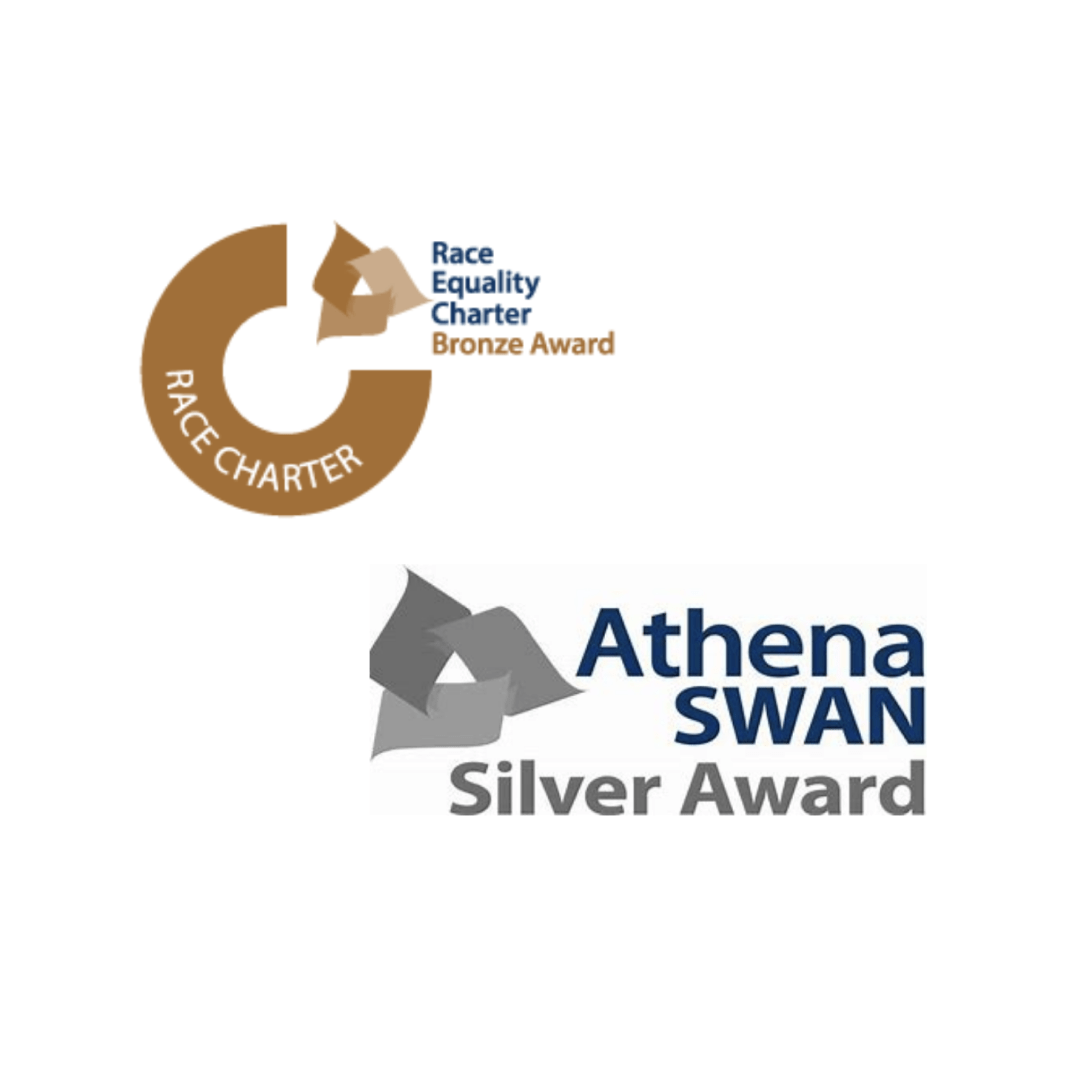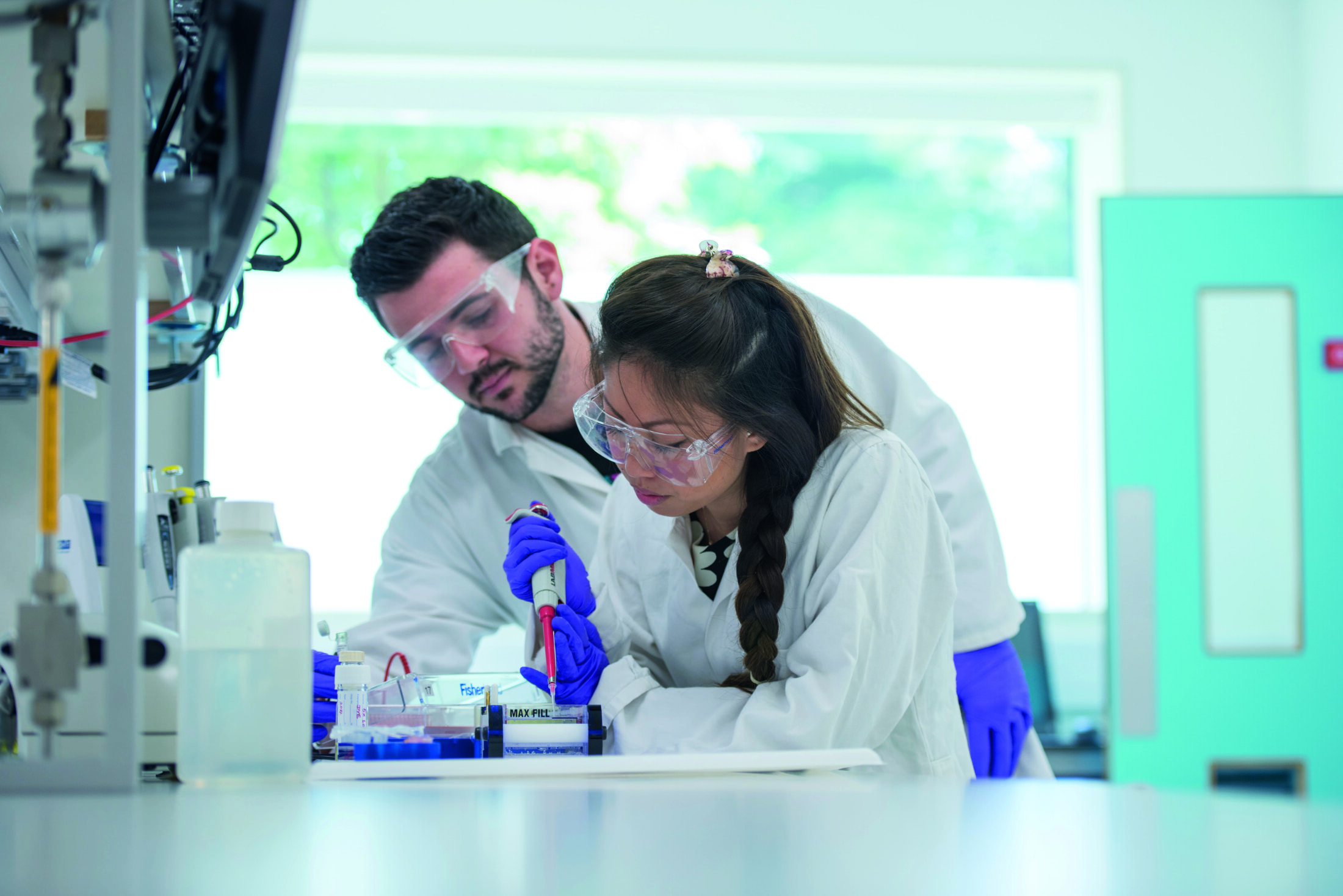


Fatima Matin

The University of Southampton is organised around five Faculties. The School of Biological Sciences sits in the Faculty of Environmental and Life Sciences along with the Schools of Psychology, Health Sciences, Ocean and Earth Sciences, and Geography and Environmental Sciences led by the Dean, Tamar Pincus. The School of Biological Sciences has extensive reach across the University with more than 75% of its research activity in collaboration with other Schools and Faculties and with strong links to medicine, chemistry, engineering and environmental science.
Biosciences at Southampton is expanding thanks to significant new investment from the University as it implements its forward-looking and ambitious new strategy for growth with quality. The vision is encapsulated by the symbol of the triple helix in which world-leading research, enterprise and education are intertwined and enabled by a deep-seated commitment to develop and support the people who make it happen.
Our School of Biological Sciences is perfectly aligned with this strategy.

Biological Sciences’ home is the award winning Life Sciences Building on the Highfield Campus. We moved into the building in 2010 and it provides superb, large, shared laboratories and specialist facilities that are well served by an expert team of pool technicians. We have core facilities that are equipped and supported by the School as follows: Proteomics, Invertebrate Facility, sequencing, media kitchen, protein production, tissue and cell culture, environmentally controlled rooms, glass houses and plant growth rooms, imaging and microscopy and a biomolecular core facility. We also have access to the Biomedical Research Facility and the Biomedical Imaging Unit and other facilities at the University Hospital Southampton campus.
We also have labs at the University Hospital Southampton campus for colleagues working in close proximity with clinicians and who require access to the Biomedical Research Facility. They are distributed between the South Academic Block, the new Centre for Cancer Immunology and the Institute for Developmental Sciences.

Our research and enterprise – We are proud of our achievements in biological sciences research and enterprise with an excellent REF2021 outcome for UoA5 that places us 9th in the UK for research impact. World-leading expertise in molecular and cellular biosciences, with cross-cutting capability for systems biology, ‘omics technologies and bioinformatics, underpins groupings addressing shared research questions. This is highly inter-connected with shared interests beyond the School through pro-active participation in the broader University Life Sciences Strategy, through strategic co-location of expertise e.g., for data-driven biology, for chemical biology, for ‘omics and informatics, and through our core membership of the Institute for Life Sciences. Collaborative ways of working are actively facilitated and supported. Leadership for the School’s research is provided through these six overlapping themes:
Lead: Nullin Divecha contact: n.divecha@soton.ac.uk
Lead: Becky Morris contact: r.j.morris@soton.ac.uk
Lead: Sandra Wilks contact: s.a.wilks@soton.ac.uk
Lead: Eamonn Reading contact: e.reading@soton.ac.uk
Lead: Jessica Teeling contact: j.teeling@soton.ac.uk
Lead: Mark Chapman contact: m.chapman@soton.ac.uk

Inspired by our ethos for research-led education, undergraduate degree programmes in Biology, Zoology, Neuroscience, Pharmacology, Biochemistry and Biomedical Sciences consistently rank in the top three of the Russell Group for student satisfaction. We are proud that all our degrees are Royal Society of Biology accredited. We have a dynamic cohort of postgraduates with Masters degrees in Neuroscience, Big Data Biology, Evolution in the 21st Century, Advanced Biological Sciences and Wildlife Conservation. We host the prestigious BBSRC South Coast Biosciences Doctoral Training Partnership in collaboration with the Universities of Portsmouth, Sussex and Kent and with NIAB East Malling and this, together with funding from NERC Inspire, the MRC, and the NBIC Collaborative Training Partnership (CTP) underpins a vibrant postgraduate community.

The School is deeply committed to the University ambition for an inclusive culture where everyone feels they belong and can be successful. We received a renewal of our Athena Swan Silver in 2022 and implement a number of local strategies to improve inclusion e.g., meeting free Fridays, core hours of 10 am until 4 pm and no agenda meetings with staff groups to provide a line for dialogue and continued improvement. The University is a recent recipient of the Race Equality Charter Bronze Award, the Mental Health Charter, is a Disability Confident Leader, is a signatory to the Technician Commitment and the Concordat for Development of Researchers (HR Excellent Award Holder).
Six Faculty positions (Lecturer/Associate Professor/Professor) in Biological Sciences encompassing Microbial Biofilms, Plant Sciences, Neuroscience, Computational Biology, and Advanced Cell Models.
School of Biological Sciences, Faculty of Environmental & Life Sciences, University of Southampton.
Join a growing and diverse team of biological scientists at the University of Southampton!
As part of an ambitious and ongoing plan for strategic growth in Biosciences at the University of Southampton, we are looking for six new Faculty members. You may be an early career researcher looking to take that first step to independence or an established leader in your field excited by the opportunity to shape the life science agenda at the University of Southampton; a top 100 University in the QS World Rankings. Whatever stage of career, you will join a friendly, highly collegial, supportive and collaborative research environment.
Our research themes span molecular and precision bioscience, cell and developmental biology, neuroscience, microbiology, plants and food security, and ecology and evolution, with our research ranked in the top 10 for impact (REF2021). We drive interdisciplinarity through the Institute for Life Sciences (IfLS) and the Sustainability and Resilience Institute (SRI) and host the National Biofilms Innovation Centre and the BBSRC SoCoBio DTP. We have consistently been ranked highly within the Russell Group of universities for undergraduate student satisfaction.
Appointments will be either as Lecturer (equivalent to Assistant Professor, salary range £44,263 to £56,021) Associate Professor (salary range £57,696 to £72,018) or Professor (starting salary £75,097) in the following areas:
MICROBIAL BIOFILMS (Associate Professor/Professor) You will be a microbiologist with experience in the biology and mechanisms of microbial biofilms as relevant to their structure, function, or interactions within complex microbial communities. This post will be affiliated to the National Biofilms Innovation Centre (NBIC) at Southampton. The ideal candidate will have leadership experience and will contribute to and enhance NBIC’s reputation as a leading and internationally recognised centre for biofilm research and innovation.
PLANT SCIENCES (Associate Professor/Professor) With expertise in plant biochemistry, physiology or developmental biology your research will address fundamental questions in the field and will ideally be focussed on the key societal challenges being faced today. You will join a growing team of researchers whose research which spans the breadth of plant science from fundamental plant biochemistry and developmental biology through to the interactions with the environment and other organisms.
NEUROSCIENCE (Lecturer/Associated Professor) We are looking to recruit two neuroscientists with research interests in molecular and cellular neuroscience, and systems neuroscience. Your research will contribute to understanding neurological function in health and/or the development and progression of neurological disorders. With Southampton’s strong record in neuroscience, you will be joining a community of researchers whose interests range from fundamental neuroscience research through to clinicians and health care practitioners. This interdisciplinary research is supported through membership of the IfLS themes including the Interdisciplinary Dementia and Ageing Centre.
COMPUTATIONAL BIOLOGY. (Lecturer/Associate Professor) You will have expertise in the field of computational biology with research interests that synergise with the School’s research themes. Applicants with experience in Artificial Intelligence and Machine Learning are particularly encouraged to apply. The successful applicant will benefit from access to the University’s high performance computer cluster (IRIDIS).
ADVANCED CELL MODELS (Lecturer/Associate Professor) You will have expertise in the development and/or application of advanced cell models, e.g. iPSCs, organoids, tissue engineering, mechanobiology to address key questions in biosciences that synergise with the School’s research themes. You will integrate in a growing community of experts, including the Southern Stem Cell & Regeneration Network (SSCRNet), the Centre for Human Development and Stem Cells, Southampton Cellular Research and Tissue Engineering Systems (SoCRATES) and benefit from membership of the IfLS themes Fortisnet and Stem Cells and Organoids.
These post descriptors are not exhaustive and if you are unsure if you fit, you are welcome to enquire through the contact below.
You will demonstrate a passion for education and an ability to enhance our undergraduate and postgraduate curriculum in the life sciences.
You will have a doctorate in a relevant discipline, an ability to enhance our education and to obtain peer-reviewed funding and evidence of distinction in research through publications.
We are proud to hold an institutional and departmental Athena SWAN silver award and the Race Equality Charter Bronze Award 2022. Due consideration will be given to applicants who have had career breaks. To find out more about our practical support for inclusion contact our Chair Equality Diversity and Inclusion Group, Dr Judith Lock, would be pleased to help you J.E.Lock@soton.ac.uk.
Enquires to Head of School, Professor Phil Williamson are warmly encouraged, P.T.Williamson@soton.ac.uk +44 (0 )2380 594350

You will be a microbiologist with experience in the biology and mechanisms of microbial biofilms as relevant to their structure, function, or interactions within complex microbial communities. This post will be affiliated to the National Biofilms Innovation Centre (NBIC) at Southampton. The ideal candidate will have leadership experience and will contribute to and enhance NBIC’s reputation as a leading and internationally recognised centre for biofilm research and innovation.

With expertise in plant biochemistry, physiology or developmental biology your research will look to answer fundamental questions in plant sciences that have the potential to address today’s key societal challenges. You will join a growing team of researchers investigating areas from fundamental plant science to the interactions of plants with their environment.


You will have expertise in the field of computational biology with research interests that synergise with the School’s research themes. Applicants with experience in Artificial Intelligence and Machine Learning are particularly encouraged to apply. The successful applicant will benefit from access to the University’s high performance computer cluster (IRIDIS).

You will have expertise in the development and/or application of advanced cell models, e.g. iPSCs, organoids, tissue engineering, mechanobiology to address key questions in biosciences that synergise with the School’s research themes. You will integrate in a growing community of experts, including the SSCRNet, SoCRATES and benefit from membership of the IfLS themes Fortisnet and Stem Cells and Organoids.

In an open-call we would welcome applications from academics whose interests complement the ongoing research within the School. You will integrate into a highly collaborative and interdisciplinary environment that fosters research and education across Biological Sciences.
Application deadline: Monday 30th September
Interviews: TBC November (in-person or online)